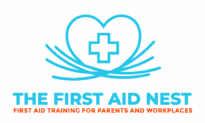Emergency Response to Medicine Overdose: Steps to Take When Time is Critical
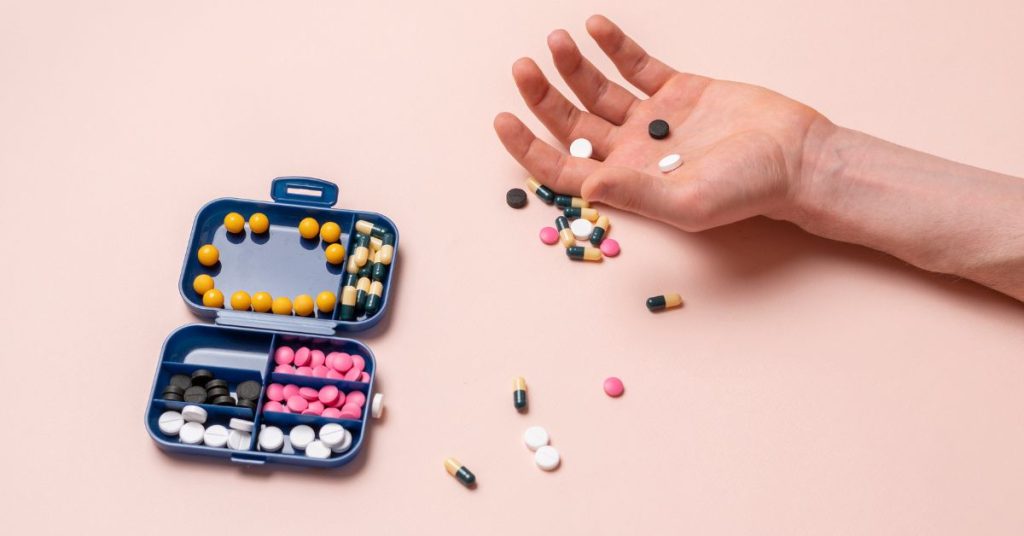
The availability and accessibility of medications in today’s modern world has resulted in numerous benefits to the health and well-being of the general population. This convenience, however, comes with the risk of misuse and accidental overdose.
A medication overdose can happen to anyone, at any time, and knowing how to respond quickly and effectively in this situation is important.
Too much alcohol can damage your kidneys, and too much medications can pose a several side effects that can lead to coma or death.
This blog post outlines the crucial steps to take during an emergency response to a medicine overdose, emphasizing the importance of quick action and informed decision-making.
What Is a Medication Overdose?
A medication overdose occurs when a person consumes more medicine than is prescribed. This can happen unintentionally due to dosage confusion, medication interactions, or even by mistake such as mistaking one medication for another.
Overdoses can be intentional in some cases, as a result of self-harm or substance abuse. A medicine overdose, regardless of the cause, is a serious medical emergency that requires immediate attention.
Causes of a Drug Overdose
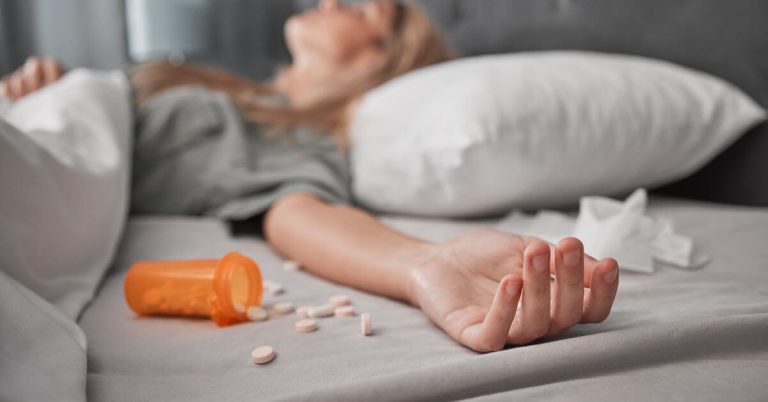
Overdoses are caused by either accidental overuse or intentional misuse of drugs. Accidental overdoses can occur when children are left unattended with medication and when adults inadvertently take incorrectly dosed medications.
Unintentional drug overdose, on the other hand, occurs when a person accidentally consumes a drug and when the patient received an incorrect drug and dosage. Drug overdose can also occur during medical or surgical procedures, in some cases. And intentional overdose involves taking the medication for the purpose of getting a ‘high’ or, in some cases, harming oneself.
Common Medications that Are Overdosed or Misuse
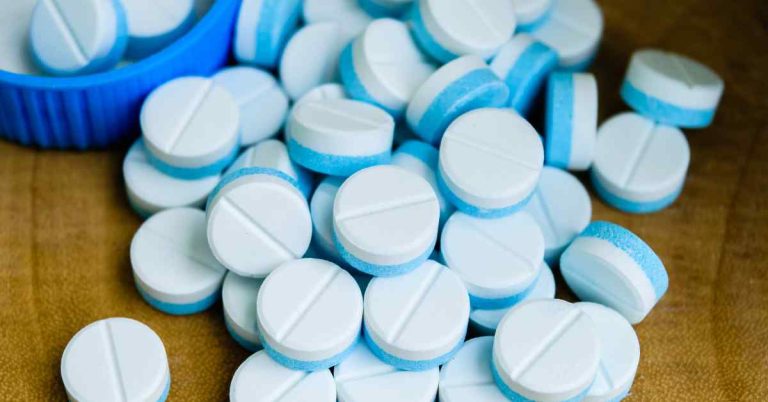
When illness strikes, medications are often the first thing that comes to mind as a primary solution. However, overdosing on medication can have serious effects, including coma and even death.
Following are some common medications that are misuse or overdose:
- Benzodiazepines
- Anti-depressant Drugs
- Opioids
- Paracetamol
- Drugs for diabetes
- NSAIDs (Aspirin)
- Antihistamine
Signs and Symptoms of Drugs Overdosed

Everyone reacts differently to a drug overdose. The signs and symptoms are affected by several factors such as the amount of drug consumed, the drug used, and the person’s current health status.
- Nausea and vomiting
- Severe stomach pain and abdominal cramps
- Diarrhea
- Chest pain
- Dizziness
- Loss of balance
- Loss of co-ordination
- Being unresponsive, but awake
- Limp body
- Seizures (fitting)
- Hallucinations
- Breathing problems
- Unconscious
- Visual disturbances
Emergency Response to Medicine Overdose
Quick action is important when dealing with a medication overdose due to its potential fatality as it can rapidly affect the whole body systems, particularly the nervous system, specifically the brain.
- Stay Calm and Assess the Situation
It is important to remain calm and composed. Panic can impair clear thinking and prevent you from making rational decisions. Take a moment to assess the situation and collect as much information as possible.
- Call for Medical Help
Call the emergency services hotline or your local poison control center right away. Inform them of the overdose and provide with accurate information about the person affected, the medication used, and the symptoms observed. They are trained professionals who can guide you through the steps, so follow their instructions carefully.
- Gather Information about the Medication
Gather any available information about the medication involved in the overdose while you wait for professional help. Look for the name of the medication, the dosage, and the packaging. Take a photo of the packaging or label for future reference if possible.
- Monitor and Support Breathing
In some cases, an overdose may affect a person’s ability to breathe properly. Keep a close eye on the person’s breathing pattern and provide any necessary respiratory support. If they stop breathing, start cardiopulmonary resuscitation (CPR) immediately if you are trained to do so.
- Keep Them Calm
Ensure they are positioned comfortably to help breathing. Keep the person calm, because anxiety can worsen the situation. Assurance and support can provide comfort in a distressing time.
- Do Not Induce Vomiting
Vomiting is not recommended in cases of medicine overdose unless instructed by medical professionals. Certain medications can cause further harm if vomited, and it is best to consult with doctors before attempting any remedies.
- Prevent Further Exposure
If the overdose was caused by a toxic substance. It is important to isolate the area and keep everyone away from the potentially hazardous substance. Maintain the packaging and any remaining medication for analysis.
- Co-operate with Emergency Medical Personnel
When medical personnel arrive, give them all of the necessary details you have gathered and co-operate fully. They may ask questions, perform tests, or provide treatment as soon as possible. Giving proper and detailed information can help them assess the patient and give the best treatment.
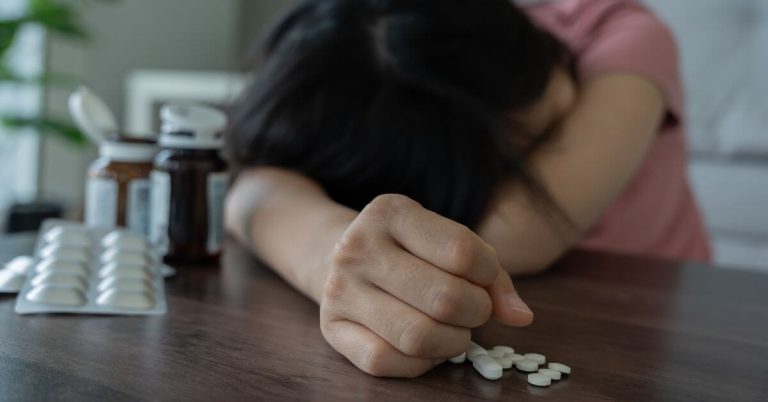
Preventing Medicine Overdose
Prevention is key in avoiding medicines overdose incidents. Here are some preventive measures to consider:
- Follow Prescribed and Right Dosages: Always adhere or follow the prescribed dosage and administration instructions provided by the healthcare professionals.
- Communicate with Healthcare Providers: Inform the healthcare providers about all the medications you are taking, including over-the-counter drugs and supplements. They can assess potential interactions and advise accordingly.
- Proper Medication Storage: Keep medications in their original containers, away from children and pets. Ensure proper storage conditions, such as temperature and moisture requirements to maintain their effectiveness.
- Manage Medications: Use pill organizers, reminders, or smartphone apps to help manage medication schedules and reduce the risk of misuse of medications.
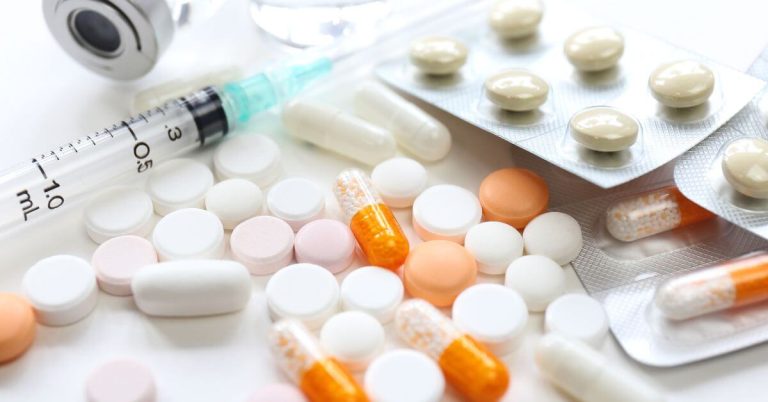
Always remember, overdose can happen to anyone, anytime, and anywhere, and being aware of the risks, recognising the warning signs, and seeking help as soon as possible can make a significant difference. When it comes to medication use, stay informed, take precautions, and prioritise health and well-being.
Every second counts, and your actions can lead to a positive outcome and a negative outcome. Stay alert, and be prepared to deal with a medication overdose emergency. Your skills and knowledge can make a big difference in every situations.
Want more? We’ve got you covered…
Our Baby First Aid Courses
Our baby first aid courses are available in person in your home and online. We run classes in your home with groups of 2, 4 or up to 10 in Sydney & Melbourne and you can book in 3 easy steps!
- Pick your class
- Follow the prompts to purchase
- We will contact you within 24 hours to lock in your date of choice
Our First Aid Certificate Courses
We run most of the popular first aid courses Australia wide. HLTAID011 Provide First Aid, HLTAID009 Provide CPR, HLTAID012 Provide First Aid in an Education & Care Setting, RAMOAP (anaphylaxis), Mental Health first aid and CPR/LVR to name a few.
Book your public spot online or contact us if you have a group of 5+ people for onsite training.
Here are some other resources you may enjoy!
FREE GUIDE: Your Virtual Baby First Aid Kit
FREE GUIDE: Introducing Common Allergy Foods & Allergic Reactions
FREE Workplace Emergency Preparedness Plan: Grab this at the bottom of every page!
Follow for baby & child first aid and allergy info and tips on Instagram & TikTok, all @thenestcpr
